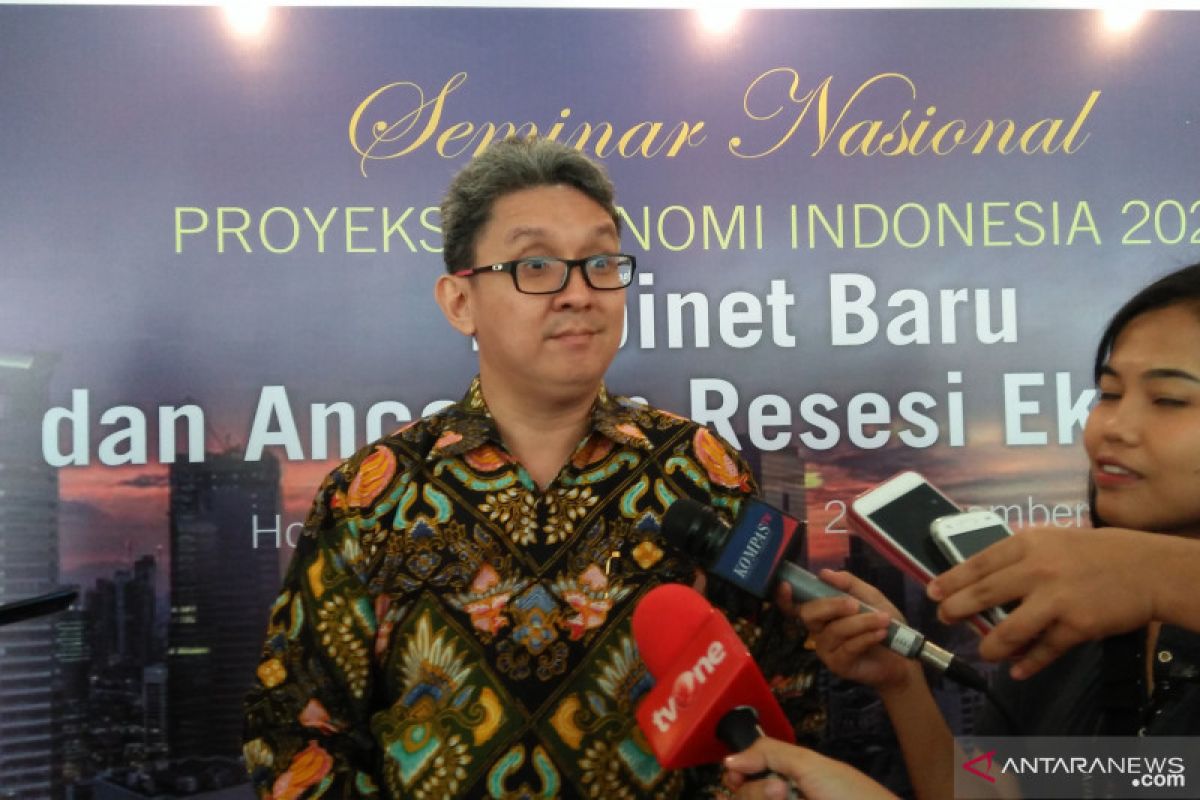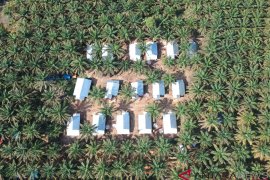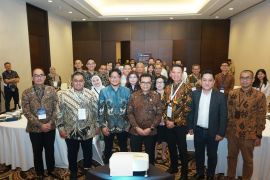"We observe that in terms of the declining export factors," Indef Research Director Berly Martawardaya remarked at the national seminar on Indonesia's economic projections in Kuningan, South Jakarta, Tuesday.
Martawardaya noted that the projection was lesser than the government-set target of 5.3 percent in the 2020 State Budget that is no easy task to accomplish.
Global challenges are marked by a decline in economic growth and also towards a global recession.
Related news: Global crisis weighed heavy on Indonesia's economic growth: BI
The other challenge is in the form of a trade war between the United States and China that is yet ongoing and full of uncertainty.
The turmoil has impacted the growth and world trade.
Indef observes slowing export demand, particularly commodities, followed by a decline in direct investment.
The trade dispute between Japan and South Korea also affects the economic outlook in the Asian region.
In terms of the domestic challenges, Indef is looking at the current account deficit, the declining rate of exports, and investment.
In the meantime, Indonesia's ease of doing business (EoDB) ranking remains stagnant at 73rd position out of the 115 nations worldwide.
A plan to boost goods and services, whose prices are determined by the government, also becomes a huge challenge in maintaining the public's purchasing power.
Some 56 percent of Indonesia's economic growth has, so far, been driven by the performance of household consumption.
According to data from the Central Statistics Agency (BPS), Indonesia's economic growth this year had begun slowing in the first quarter to reach 5.07 percent.
Thereafter, in the second and third quarters of 2019, Indonesia's economic growth slowed down, respectively at 5.05 percent and at 5.02 percent. Related news: Indonesia's economy needs 7% growth for Vision of 2045: official
Translator: Dewa Ketut, Azis Kurmala
Editor: Rahmad Nasution
Copyright © ANTARA 2019










